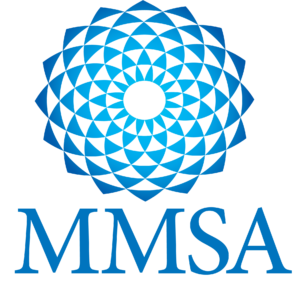Young people throughout Maine participated in “Hour of Code” during Computer Science Education Week December 9-15. Thousands of Maine students spent at least an hour learning computer science in this huge national effort, with tutorials, inspirational videos, links to curricula, and more at Code.org.
MMSA’s Reach Center joined Educate Maine’s Project>Login in leading the efforts to bring Hour of Code to Maine, encourage young people to participate, and provide pathways to continue with coding to all who are interested.
Maine students at schools throughout the state creatively using the national Hour of Code program to develop interesting programming experiences. Some participated in national video chats with Microsoft founder Bill Gates and Jack Dorsey, the co-founder of Twitter, that were organized by Code.org. Several organizations offered Hour of Code events outside of school: Husson University, the Maine Discovery Museum, and Maine Robotics in coordination with Project>Login at the Augusta Civic Center. And, of course, dozens of schools participated.
This is all in an effort to demystify coding and encourage young people to be creators as well as users of technology. “Don’t just by a new video game. Make one. Don’t just download the latest app. Help design it. Don’t just play on your phone. Program it.”
This message from President Barack Obama was one of many inspirational quotes from across the nation in videos kicking off Computer Science Education Week.
The message was very well-received. MMSA’s Reach Center invited middle school and high school students to share what they learned, and provided a 1-GB USB wristband to those who did. More than 225 young coders in Maine requested these, and we’re very happy that so many now have a simple way to take their computer files with them wherever they go! Comments reflected a wide range of experience–from a first introduction to code to exploration of robotics programming to learning how to teach others how to code.
Leaders at Shapleigh Middle School in Kittery announced they received a $10,000 grant from Code.org to continue the schools extensive Hour of Code learning opportunities into future afterschool coding clubs.
Now that the one-week program is complete, emphasis is on connecting young people with afterschool coding clubs, robotics clubs, online courses, and the “Beyond the Hour of Code” section at Code.org, which includes prizes for students and teachers who participate in the 20-hour online K-8 Intro to Computer Science.
We’ll continue sharing resources to help give anyone the tools to be a maker, a creator, an innovator. For example, this is an excellent entry into the world of Scratch, a creative learning community developed by the Massachusetts Institute of Technology. With Scratch, you can program your own interactive stories, games, and animations – and share your creations with others in the online community. MMSA’s Reach Center is currently recruiting organizers to offer Maine Scratch Day events at several locations as part of the national Scratch Day program.
Computer science can go in many directions: programming robots for industry or fun, creating 3-D or other animation videos, developing apps for mobile devices, and even teaching others how computers work.
And it all began with an hour of code.


